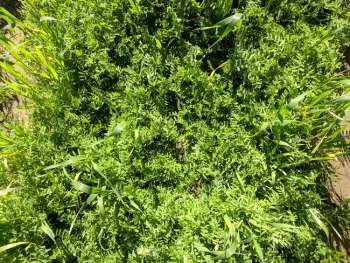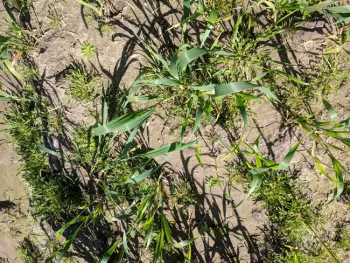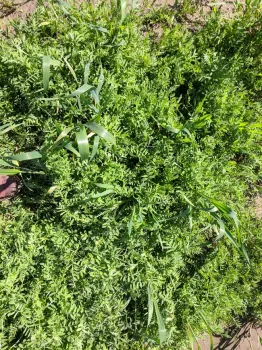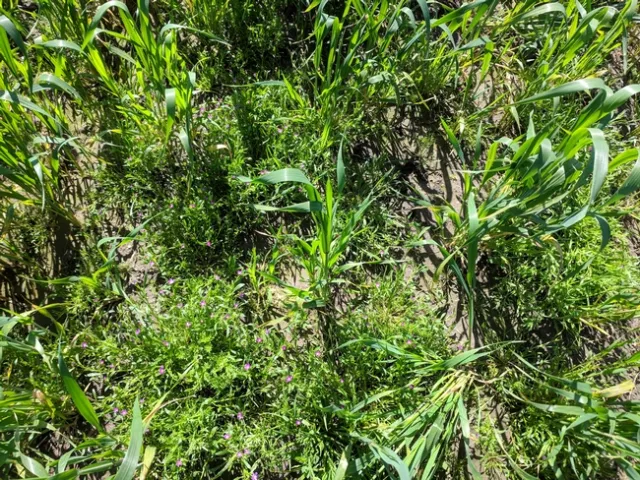Last week, Vegetable Crops Advisor Amber Vinchesi and I went out to quantify weed density in our winter cover crop research plots in Meridian, CA. The differences between the plots with a vetch cover crop and the fallow control plots were apparent!


Volunteer wheat is growing throughout the field, which isn't a problem because it is high in biomass, adds organic matter to our soil, and is not going to seed before cover crop termination. In the vetch planted plots we observed a mix of wheat and vetch with very minimal weed pressure. (Also, very little bare soil which reduces our risk of erosion or surface compaction by protecting our soil structure). In the fallow control plots however, winter weeds were more prominent and some had already set seed, or were close to doing so.


In addition to the soil building benefits of cover crops, there are weed management opportunities as well. Cover crops can outcompete weeds andensure that what's growing in your field during the winter is something you've selected. Also, in a wet winter (and early spring) like the one we're having now, there's less of a risk that winter weeds will go to seed and build up seed density in the field because we can't get into the wet ground to control them.
Photos: Amber Vinchesi

